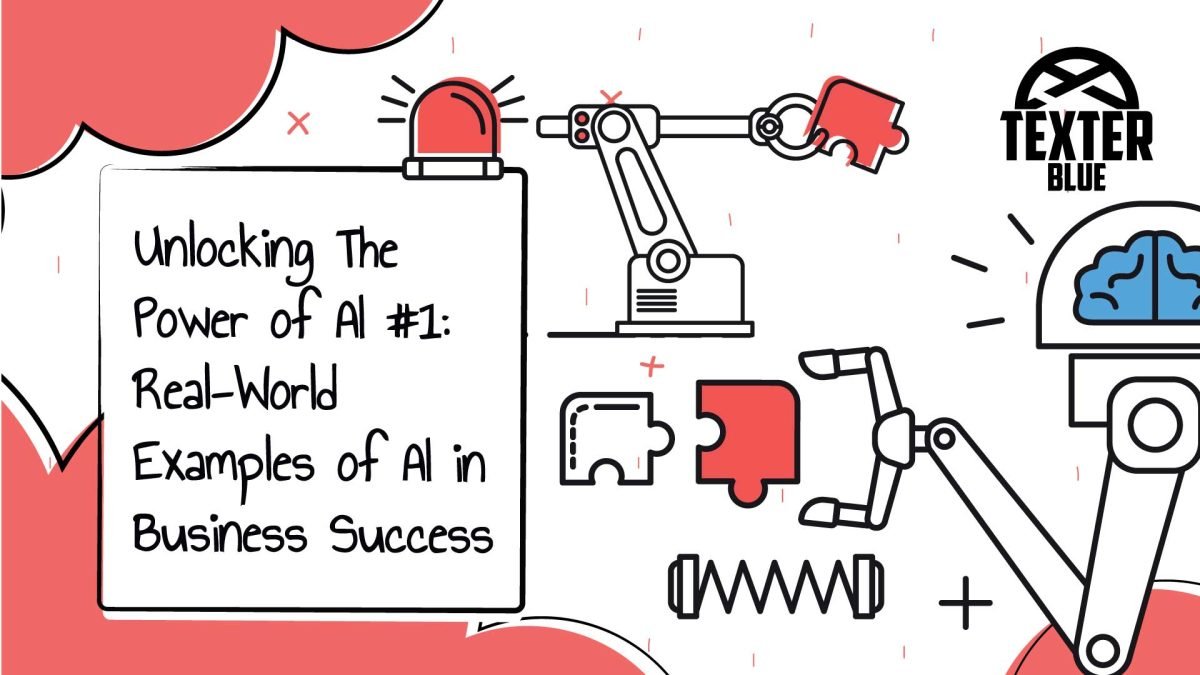In today’s business landscape, Artificial Intelligence (AI) has become a vital component of operations.
For some time now, AI has been a prominent term, with businesses actively seeking ways to utilize its capabilities fto achieve success.
In this article, we will delve into examples of companies harnessing the power of AI to elevate their operations. From predictive analytics to the implementation of chatbots and more.
How AI drives success
The potential of AI is to revolutionize business operations. Here are some of the most notable advantages of integrating AI into business:
- Cost efficiency: AI streamlines operations by automating repetitive tasks, saving time and resources for more critical business functions.
- Enhanced efficiency and productivity: By automating tasks, optimizing workflows, and refining decision-making processes, AI boosts overall efficiency and productivity in business operations.
- Increased customer experience: AI-powered chatbots and voice assistants offer round-the-clock customer support, reducing wait times and elevating overall customer satisfaction levels.
- Informed decision-making: With real-time insights and predictive analytics, AI empowers businesses to make more informed and accurate decisions.
Real-world examples of AI in business success
To provide a clearer perspective on the importance of AI, let’s examine real-world instances of its application across diverse industries.
Healthcare
In the healthcare sector, AI has revolutionized the approach to handling tasks that once demanded manual intervention. Its impact is evident across various departments:
- Diagnosis and treatment – AI-powered diagnostic tools assist healthcare professionals in accurately identifying illnesses and creating personalized treatment plans. This efficiency allows doctors to allocate more time to patients in need.
- Drug discovery – AI aids pharmaceutical companies in expediting the process of drug discovery and development by analyzing extensive data and identifying potential drug candidates.
- Medical image analysis – AI has reached a level of sophistication where it can analyze medical images, such as X-rays and MRIs, facilitating more precise diagnoses by doctors and radiologists. This reduces the burden on medical staff, freeing them from mundane and repetitive tasks.
Retail
In the realm of retail, the potential of AI is expansive, offering a multitude of benefits to the industry. Here are some notable applications:
- Inventory Management – AI aids retailers in fine-tuning inventory levels by forecasting demand, minimizing waste, and preventing stockouts.
- Personalized Recommendations – AI enables the delivery of tailored product suggestions to customers, taking into account their preferences and behavior, thus enhancing the shopping experience.
- Fraud Detection – AI-driven fraud detection systems empower retailers to pinpoint fraudulent transactions, and, in that way mitigating losses attributed to fraud.
Finance
AI plays a pivotal role in increasing efficiency, cost reduction, and elevating customer experiences within financial institutions. Businesses often chose to enlist dedicated software development teams to ensure the optimal implementation of AI strategies.
In the finance industry, here are some prevalent applications of AI:
- Risk Management – AI empowers financial institutions to identify and mitigate risks more effectively through data analysis and real-time insights.
- Fraud Detection – AI-driven fraud detection systems enable financial institutions to swiftly identify and prevent fraudulent transactions, thereby averting economic losses.
- Trading – AI aids traders in analyzing market data, facilitating more informed investment decisions and ultimately enhancing investment outcomes.
- Customer Services – AI-driven chatbots swiftly and accurately address customer queries, minimizing the necessity for human intervention.
- Chatbots – AI-powered chatbots provide 24/7 customer support, reducing wait times and augmenting overall customer satisfaction.
- Voice Assistants – AI-driven voice assistants assist customers with basic tasks like checking account balances and conducting transactions.
- Personalized Support – AI leverages customer behavior and preferences to deliver tailored support, thereby increasing the overall customer experience.
Manufacturing
The impact of Artificial Intelligence spans across various industries, and manufacturing is no exception. Here are some prevalent applications in the manufacturing sector:
- Predictive Maintenance – AI-driven predictive maintenance systems aid manufacturers in anticipating equipment failures before they occur, thereby minimizing downtime and enhancing productivity.
- Supply Chain Optimization – AI has the capacity to streamline the supply chain by forecasting demand, shortening lead times, and optimizing inventory levels.
- Quality Control – Harnessing the capabilities of AI, manufacturers can enhance quality control by swiftly detecting product defects and anomalies during the manufacturing process.
The integration of Artificial Intelligence (AI) has ushered in a new era of efficiency and innovation across industries.
By automating tasks, refining decision-making processes, and enhancing customer experiences, AI has become an indispensable tool in modern business practices. Its ability to predict equipment failures, streamline supply chains, and improve quality control has revolutionized the way industries function.
TML: Texter Machine Learning by Texter Blue
Your content and data are the foundation upon which your business operates, and critical decisions are made. Recent advancements in AI in areas such as image and natural language processing have enabled a whole new level of automatic extraction of information and data analysis that power the automation of key business processes not possible until now.
- Process your data with different AI engines, integrating the results.
- Supports several data formats: images, video, text, etc.
- Generate new content and document versions based on AI results.
- Store extracted information in metadata, enabling further processing and process automation.
- On cloud or on-premises – in case you don’t want data to leave your private infrastructure.
- Compatible with several different ECM providers
- Ability to develop custom AI models to target your specific needs and data.
AI is essential to remain relevant!
The adoption of AI in modern organisations is essential to remain relevant and competitive, optimising efficiency, empowering new business opportunities and freeing critical human resources to specific value-added tasks.
Download here our TML – Texter Machine Learning – Datasheet:
By submitting you confirm that you have read and agreed with our Privacy Policy.
If you’re struggling with your digital transformation, remember… you are not alone in this… Texter Blue is here to help you providing the best results! Make sure you read our news and articles and contact us.

